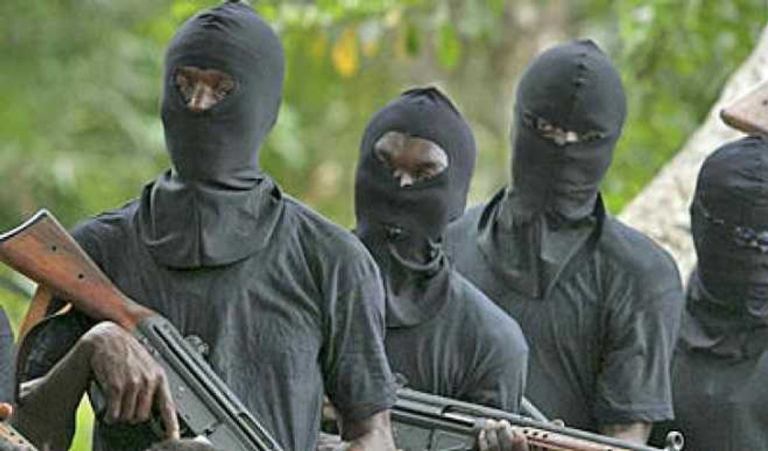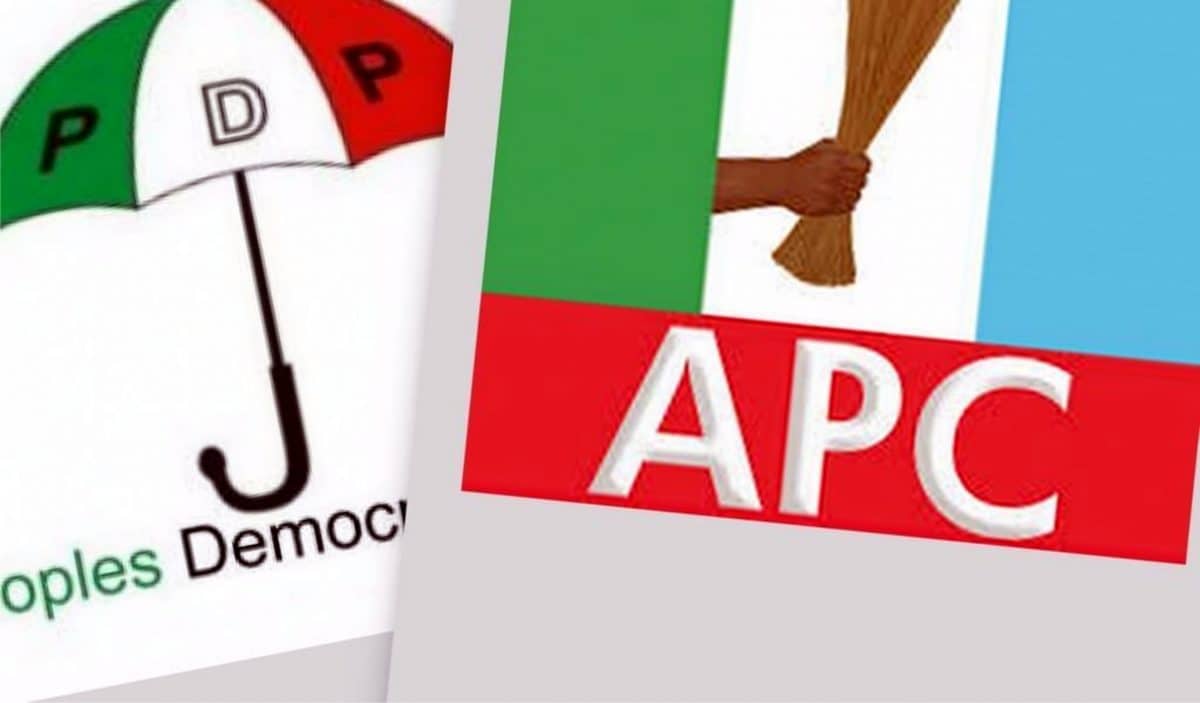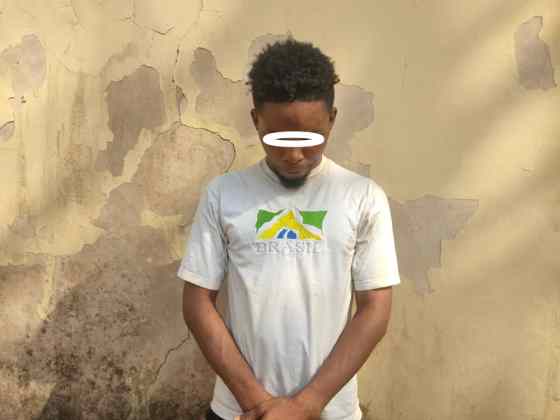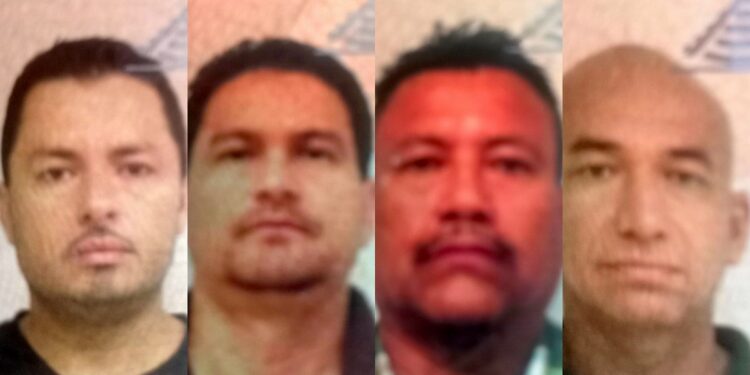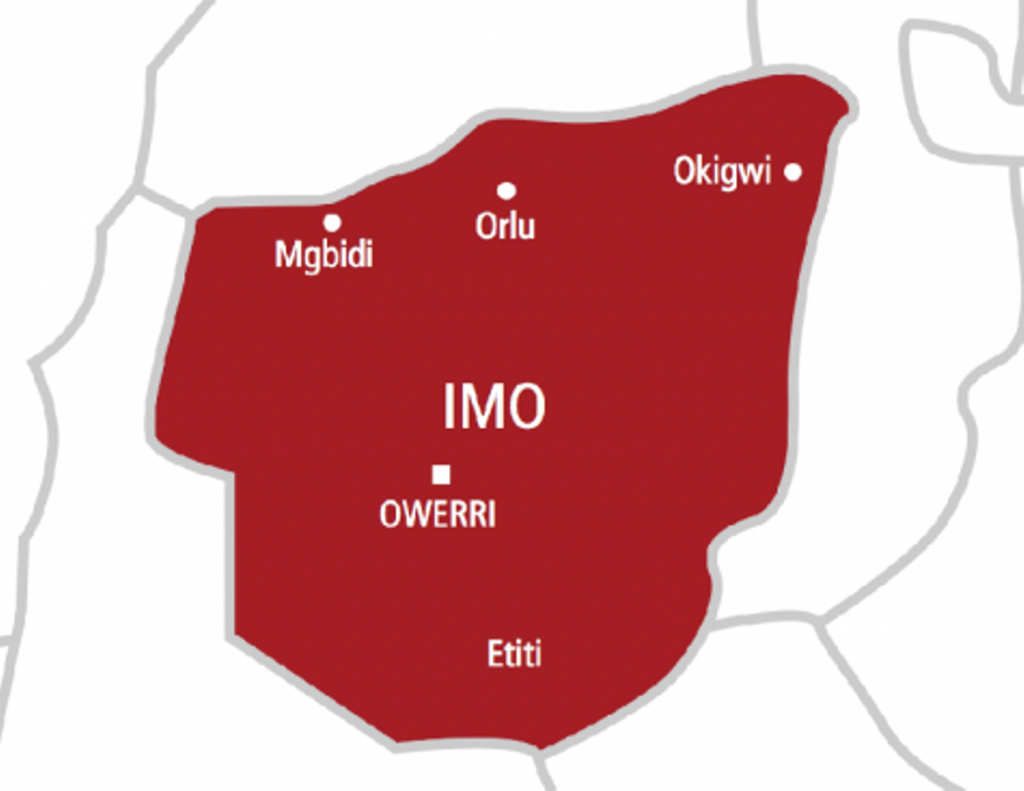A judge of the Federal High Court in Asaba, Delta State, has revealed how the National Drugs Law Enforcement Agency (NDLEA) allegedly under-disclosed the assets seized from some jailed drug barons. But the NDLEA denied concealing any assets seized from the convicts in an interview with PREMIUM TIMES on Friday. PREMIUM TIMES had reported how the judge, Okon Abang, sentenced the nine drug barons to 10 years in jail, on Tuesday, and rebuked the agency for blocking stiffer punishment for them. The convicts include five Nigerians – Anthony Umolu, Chibi Aruh, Izuchukwu Anieto, Williams Agusi and Augustine Koisochukwu Umolu – with four internationally-wanted Mexican conspirators. The Mexicans are Cervantos Bruno, Rivas Pstiano, Castillo Cristobal and Patida Pedro. They were all caught in March 2016 at a “clandestine” laboratory in Asaba, Delta State, where they were producing a cocaine-like substance – methamphetamine, with evidence also showing they were operating a drug trafficking organisation. Mr Abang condemned NDLEA for entering into a plea agreement with the drug barons at an advanced stage of the six-year-old trial when their guilt had already been established. Only some assets linked to the drug barons were listed in the plea agreement for permanent forfeiture. They are a Mercedes Benz ML4 350 car, a Toyota Tundra Hilux van, and the sums of N20 million and N894,463.43 recovered from the convicts. Mr Abang ordered them to be permanently forfeited to the federal government on Tuesday. The judge ordered the sums of money to be paid into the federation account kept by the Central Bank of Nigeria (CBN) within 30 days. Undisclosed assets Apart from seeking to reduce the jail time of the drug traffickers, the judge said, the plea agreement did not account for the landed assets recovered from the defendants. NAHCON State AD NAHCON Tour Operator AD NAHCON Cargo Operator AD Kogi AD “The NDLEA has not disclosed the entire property recovered from the convicts and admitted in evidence in the purported plea bargain agreement dated 30 June 2022 that ought to have been forfeited to the federal government of Nigeria,” Mr Abang had insisted on Tuesday. He noted that the illicit substances seized from the defendants admitted during the trial as exhibits and kept in the custody of NDLEA, and the equipment recovered from the clandestine laboratory were not presented for forfeiture. Similarly, the judge said the landed assets recovered from the convicts were also excluded from the plea agreement. The assets, according to the judge, included plots of land in Lagos, Ogun, and Anambra States, and a house in Abuja. “Where are those landed properties that were attached (seized)? Why are they not disclosed in the plea bargain agreement?” Mr Abang queried. ⓘ He listed the allegedly concealed assets as follows: Two (2) plots of land measuring approximately 1,330.524 square metres in Oko-Ado, off Lekki-Epe Expressway, Eti-Osa LGA, Lagos State One (1) plot of land at Imaletealafia Village along Epe-Lagos Expressway, Ibeju-Lekki LGA, Lagos State Three (3) plots of land at HOMAC Estate, Phase 3 of Wisdom Park Estates Properties, Lagos State Property at Plot No. 219, Zone A, Gidan Mangoro Layout, (Angwan Mada Settlement Relocation Scheme) FCT, Abuja. Four (4) plots of land at Dumuria Layout, Dunboko Vilage, Umuoji, Idemili North LGA, Anambra State Twelve (12) plots of land at Ugbongene Land, Obosi, Idemili North LGA, Anambra State Two (2) plots of land at Wisdom Park Estates land within Mr Sunday Eke Estate in Orange Estate, Arepo, Ogun State Two (2) plots of land at Ogunleye Family Land at Arepo Village, Obafemi/Owode LGA, Ogun State One (1) plot of land at Ogunleye Family Land in Arepo Village, Obafemi/Owode LGA, Ogun State. ‘How undisclosed assets were discovered’ Mr Abang said in his judgement that he discovered the concealment from an ex parte application filed by the NDLEA on 1 September 2017, listing the landed assets, described as part of proceeds of the illicit drug transactions of the defendants, for forfeiture. With trial already ongoing at the time, the judge directed NDLEA to convert its ex parte forfeiture application to a motion on notice which would be served on the defendants to enable them to have a say in it. But the NDLEA opted not to pursue the application any further. Nothing was said about the forfeiture application or the assets for the rest of the trial. Mr Abang said the NDLEA ought to have presented the assets in the plea agreement for the court to order their forfeiture to the federal government. “These assets, seized by the NDLEA, ought to be declared to be transferred to the federal government of Nigeria,” he said. With the NDLEA failing to file the assets for forfeiture in the plea agreement, Mr Abang said, “I hold that the NDLEA is not transparent here, and cannot use the court to put a seal on an unlawful transaction.” He maintained that the NDLEA entered into the plea agreement to “compromise” the case and to enable the defendants to come out of jail early to enjoy their illicitly acquired wealth. ‘Questionable plea agreement’ Shortly after the arrest of the drug traffickers in 2016, the NDLEA charged them with five counts, including illegal production of illicit drugs and operation of a drug trafficking organisation. The alleged offences attract between 15 to 25 years in jail under the NDLEA Act. But in July, after six years of trial and 21 witnesses paraded in the case, NDLEA entered into a plea bargain agreement with the drug barons to secure a reduced jail time for them. The plea agreement proposed a 10 years imprisonment backdated by six years for the defendants. It sought to reduce the convicts’ jail time by the six years they already spent in detention while standing trial. It would have left the convicts with less than four years to spend in jail. The plea agreement also presented a list of some assets seized from the defendants as proceeds of illicit drug transactions for forfeiture to the federal government. The judge,

